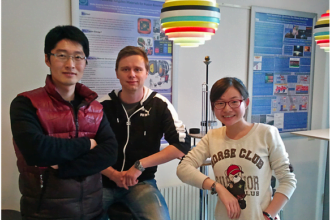This spring, I had the honor of speaking as part of a panel of doctors and patients in Phoenix, AZ, for a one-day melanoma town hall produced by the advocacy site PatientPower.info. Andrew Schorr, a two-time cancer survivor and founder of Patient Power, hosted the event that brought together a local audience, as well as online viewers.
This spring, I had the honor of speaking as part of a panel of doctors and patients in Phoenix, AZ, for a one-day melanoma town hall produced by the advocacy site PatientPower.info. Andrew Schorr, a two-time cancer survivor and founder of Patient Power, hosted the event that brought together a local audience, as well as online viewers. Andrew and his team did a great job of getting the right people together to present the entire view of melanoma and how to begin to confront and deal with a cancer diagnosis. While I have done a bit of speaking so far on this journey, this was the first time the audience consisted of peers – almost all either patients or caregivers.
Doctors Mark Gimbel, Michael Wong, and Sapna Patel are oncologists and researchers in the melanoma sphere, and spoke to a wide variety of melanoma-related topics – from treatments to research to doctor-patient interaction. They broke down the science of diagnosis and treatment options for any new patient to easily digest; well, as easily as “you have cancer, and these are your options” can be broken down. Clips of the event are online at the Patient Power site (note: registration free but required – and encouraged, by me!) along with transcripts. As a well-versed patient, I was able to glean insight from each of them.
The audience was split – maybe half patients and the other half caregivers (including my aunt!) In the afternoon, Dr. Rena Szabo, a clinical psychologist from nearby Banner MD Anderson, spoke on coping with the diagnosis and treatment of cancer. This was a great addition to the normal lineup of researchers and survivors; Dr. Szabo was able to voice many of the things I spoke to as helping me over the last few years, including the mind-body connection and positive outlook. Hearing that from a clinical psychologist, instead of me — the patient who got B’s and C’s as a psychology undergraduate — certainly helps lend credence to the notion that cancer is not just a biological battle that a patient has little control over.
Martha, a “friend through melanoma,” was also part of the panel (and recently, quite accurately, described me as an EXTROVERT, with all capital letters!) She has gone through what seems like the entire spectrum of melanoma treatments. She, Dr. Patel, and I spoke on how to navigate clinical trial options. Having another patient lend their perspective and experiences showed the audience how we may share common ground in diagnosis and coping with that diagnosis, even if our treatments and life situations can be quite different.
Prior to the meeting, Andrew and I sat down to discuss my story for the Patient Power site. It is ten minutes of what I’ve been writing about for 30 months (aka T.J.-Babble). He and I spoke about how family, and being here for them, inspired such a determined fight on my part. There’s more with Carol Preston of the Patient Empowerment Network – a fellow CMU alumni – talking yoga and actively healing. Both spots turned out pretty well. (If anyone wants to boil down this blog into 15 minutes of me yapping, just click the above links.)
For all the speaking we did as patients and doctors, the most touching part of the entire broadcast came from the audience. Martha’s husband Daniel was there, and he attempted to express what her perseverance has meant to him (and their two children). He couldn’t make it through more than a sentence or two without getting choked up. I am just glad they didn’t go to me, because I probably would have started sobbing, too. I don’t think I have seen in person such a raw display of emotion from a caretaker facing this disease. As patients, we are used to our support team showing their game face and masking the pain and hurt and fear, for our own good. It was a humbling reminder that cancer does not affect a person, it affects a family. Thanks to groups like Patient Power and events like the melanoma town hall, those families get faster, more available, and valuable education and support.
The event was sponsored by the Patient Empowerment Network (through grants from Genentech and Novartis), alongside Banner MD Anderson Cancer Center in Phoenix, the Melanoma Research Alliance, and the American Association of Cancer Research. Thanks to each of those organizations for allowing me to be a part of this day and helping reach others facing melanoma.
Reprinted with permission from Philly.com
T.J. Sharpe






